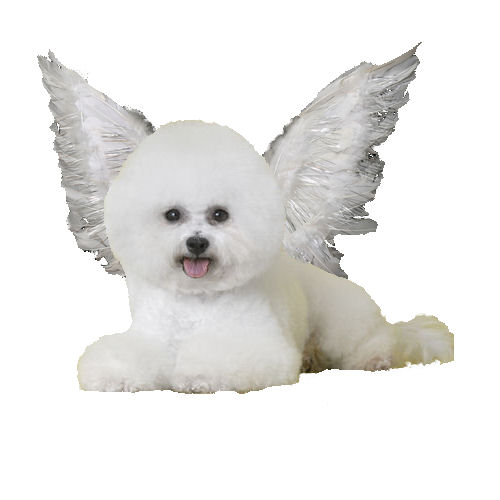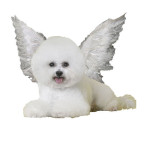Reputable breeders will keep a pup with his litter until he is between 8 and 10 weeks of age. This is to allow him to learn first to be a dog among other dogs, the key to finding his proper place in the world. During the time between 6 weeks and his departure to his new home, the breeder will spend a lot of time socializing the pup and helping him to learn to be a dog among humans. He will be exposed to people who come to visit, especially to children. He will have toys to play with and spend some time alone in his crate to learn to be without his family. His house training will begin and his natural instincts will teach him to keep his home unsoiled.
The new owner needs to follow through on the lessons begun at his first home. Exposure to new situations and new people will continue. It is up to the new owner to see to it that these are enjoyable experiences. A puppy may seem aloof when he first sees a new human. The human should get down on his level and let the pup come to him rather than to grab up the pup. This is especially true when the new human is a child. Sudden moves can be scary, even to a mild mannered puppy.
Children should also be taught that the crate is the puppy’s private place and that a puppy that goes into the crate on his own to rest should be allowed to do so. A puppy must never be disturbed while he is eating.
One of the best things you can do for a new dog, puppy or adult, is to enroll him in an obedience class. Puppies can be enrolled in Puppy Kindergarten classes as early as 3 months of age, if they have had all their puppy vaccinations. Obedience training for older pups and adults starts as early as 6 months. Look for a class that uses positive reinforcement and not punishment in its training.
Positive reinforcement is the method of choice in teaching your Bichon at home. When the dog is doing the correct thing, whether it is eliminating outside or quietly greeting visitors at the door (i.e., not barking and not jumping on them), offer praise and/or a special treat that is used only for training. For the dog that is fearful, the worst thing you can do is to pick him up and cuddle him while he is acting afraid. This is telling him that he is doing a good thing by being afraid. Try instead to teach him something else to do, such as a “sit”, “down” or “stay”. These are all taught in obedience and puppy kindergarten classes. Whenever he is doing something that is a good thing, let him know it by praising him to the extreme with lots of “Good boy/girl” along with an occasional single piece of training treat.
You will notice that the term “a single piece of training treat” is used often. Overfeeding a dog is never good, so always use caution on the amount of training treats being used.
Teasing a puppy has caused many a happy pup to become a biter or to be fearful of humans. Teasing can be taking away a toy that the pup is enjoying, it can be interfering with eating, pinching or poking at him or any other physical annoyance. Young children are especially prone to sticking fingers in those big dark eyes or pulling on the fluffy ears. They see the pup as another stuffed toy – much to the discomfort of the poor pup!
Tug toys are not a great item for a small dog for several reasons. They teach the dog to defend himself in an aggressive way and they can ruin a young dog’s bite by displacing the jaw or pulling teeth out of proper alignment. Tug toys are a part of training for attack dogs!
Chasing a dog appears aggressive to the dog and will teach him to run away from you. If you chase the pup, he will continue to run, either from fear or thinking it is a game. Running away from your puppy is not a good game either. The only time to run from a puppy is if it gets away from you. Run from the pup that is loose and run toward a safe area, preferably one that is fenced and away from the street. Better yet, drop to your knees and call him toward you. Call his name and do so in a friendly (and not in a mean) voice. A higher pitched voice is considered friendly to a dog while a deep voice is used to correct mistakes. Again obedience training will help avoid these situations because a trained dog will come, sit, go down or stay upon command.
Some Bichons do not make good home alone dogs and may become barkers when left alone for long periods of the day. If you cannot be home to spend time with a pet, you probably are not ready for a puppy in your household. Older Bichons may tolerate being alone better than pups. When you do have to be away occasionally, perhaps someone can come in during the day to play with the puppy and to take him out to relieve himself. Be sure to provide safe toys, insure there are no electrical cords or other objects that can be chewed and leave fresh drinking water available. Never ever chain a Bichon or even fence one outside all day long. They are not bred to be yard dogs and this would be considered dangerous, will lead to behavioral problems and quite possibly endanger his health.
As with children, dogs do best when they live with a routine. You will find they will adjust to weekend schedules very easily but will be happier and healthier with a daily schedule. A sample schedule can be found in the instructions for crate training. Frequent dietary changes are not recommended because each new food that is introduced creates an additional immune response that can lead to allergies. Research has shown that changing from chicken to beef to lamb, etc. sets up a reaction as the body adapts to each new protein form. It is far better to use a single protein in the diet for the first year and, even later in life, switching back and forth may trigger allergic response. Daily exercise can be worked into his playtime as part of the routine but a young pup does not need vigorous exercise as his immature skeleton and muscles are developing.
With the information provided, we hope you are off to a good start in creating a happy puppy that will fit into your family with ease. The Bichon is bred to be a companion animal and his family will mean everything to him and he to you. His world will be safer, your relationship better and his security greater with the proper socialization and trainin

